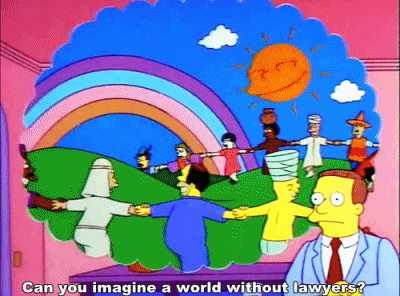24/12/13
 This book was published in 1516 and it's divided into two parts. The first one made my eyes feel exhausted, so I can sum up all that, just by saying that More found his friend Peter and this one introduced him to a fella named Raphael, a man who visited several countries to satisfy his desire to see the world. He shared some opinions of the political scenario of his time (a bit familiar; whether you are talking about yesterday's kingdoms or today's democratic governments, some things never change) and talked about some general aspects of this awesome island called Utopia. The other two guys could not believe that such a land could subsist, since it was a place where, for instance, private property didn't exist.
This book was published in 1516 and it's divided into two parts. The first one made my eyes feel exhausted, so I can sum up all that, just by saying that More found his friend Peter and this one introduced him to a fella named Raphael, a man who visited several countries to satisfy his desire to see the world. He shared some opinions of the political scenario of his time (a bit familiar; whether you are talking about yesterday's kingdoms or today's democratic governments, some things never change) and talked about some general aspects of this awesome island called Utopia. The other two guys could not believe that such a land could subsist, since it was a place where, for instance, private property didn't exist.A million words and a couple of eyelashes later, Raphael started to talk specifically about Utopia: all things relating to their soil, their rivers, their towns, their people, their manners, constitution, laws...
And here I stop. Laws. This society has few laws. Why?
"They very much condemn other nations, whose laws, together with the commentaries on them, swell up to so many volumes; for they think it an unreasonable thing to oblige men to obey a body of laws that are both of such a bulk and so dark as not to be read and understood by every one of the subjects."
That last line seems to have been quite a source of ideas to the great Kafka. And I agree: laws should be simpler, everybody should be able to understand them; and that bureaucracy that sucks life out of people should be eradicated, etc., etc. And so did the Utopians: few laws and, of course, no lawyers.
"(…) they consider them as a sort of people whose profession it is to disguise matters and to wrest the laws; and therefore they think it is much better that every man should plead his own cause, and trust it to the judge... By this means they both cut off many delays."
Ignore this paragraph. I need to vent. Well, More, this is a bit irritating. It is not my fault that we have a collapsed legal system, I am not the one that spends a month signing one freaking paper! Fu@#$% bastards that after two months they give you one lousy answer while the moron that also had to study tons of books for five fu@#$% years (and has to watch those laws being violated just like that) has to answer to the client and try to explain why the freaking process is taking like five years of his/her LIFE, DAMN IT.
Breathe.
Excellent.
Anyway, this is a book about an ideal land, a pagan place. Saint Thomas' perfect society was one that worshiped the sun or the moon or believed in a Supreme Being. A society ruled by reason had to believe in something. People who did not believe in the afterlife, commonly known as atheists, were considered beasts because they rejected a state of rewards and punishments to the good and bad people after life on earth. So, such a human being who is not afraid of anything but the laws is more likely to break them to satisfy his appetites... Not a warm and fuzzy land for the non-believers.
It has to be said, Utopians despised atheists and treated them like animals and forbade them ranks and honors and stuff, however, they did not punish them in order to avoid hypocrisy: so that men are not tempted to lie or disguise their opinions. Not that bad, huh?
As I said, this was a perfect place with no private property, with slavery (adulterers, watch out), with few laws and where everyone was happy with no legal problems to solve (yup, More, being a great lawyer himself, apparently wasn't a big fan of lawyers... sly creature!). Suddenly, a disturbing image comes to mind:
Jokes aside, this is an interesting book to read with lots of coffee in your body. A man imagined what a perfect country should be like, and yes, it is not that perfect. This book started a bit slow for me, but then it got better. I would recommend this to people who enjoy history, otherwise you can drink all the coffee Colombia has to offer, but you still won't reach page 5.


No hay comentarios:
Publicar un comentario